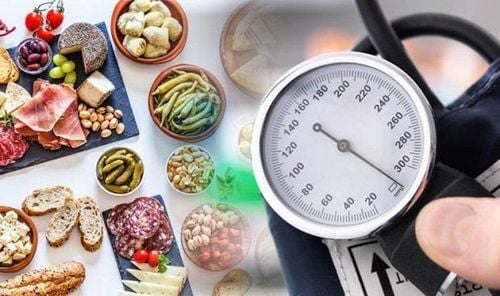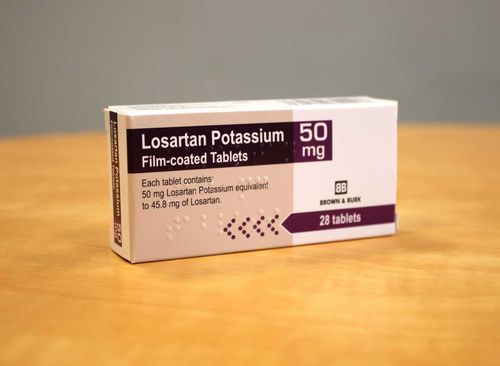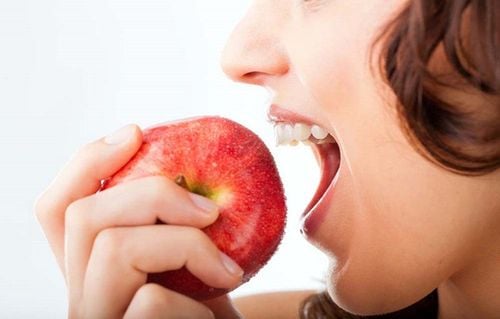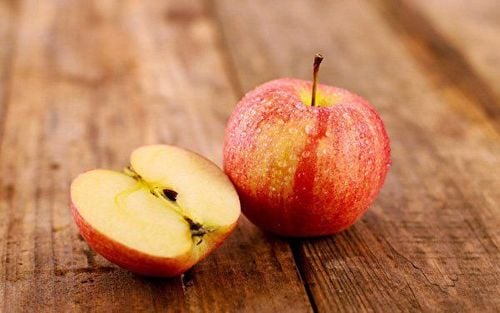This is an automatically translated article.
Eating lots of vegetables is one of the simplest ways to promote overall health. All vegetables are packed with healthy vitamins, minerals, and fiber. So what are the benefits of eating a lot of vegetables and what happens if you don't eat vegetables?
1. What are the benefits of eating vegetables?
A diet rich in vegetables and fruits can lower blood pressure, reduce the risk of heart disease and stroke, prevent certain types of cancer, reduce the risk of eye and digestive problems, and have a beneficial effect. Positive effect on blood sugar levels, helping to maintain appetite. Eating non-starchy vegetables and fruits like apples, pears, and green leafy vegetables can even promote weight loss. The low glycemic index in these foods prevents blood sugar spikes that can lead to increased hunger.
At least nine different families of vegetables exist, each with hundreds of different plant compounds that have health benefits. Eating a variety of vegetables and colorful vegetables provides the body with many necessary nutrients at the same time. This not only ensures the body receives beneficial phytochemicals, but also makes for an appealing meal.
2. If you don't eat vegetables, what will your body look like?
2.1 You may be deficient in vitamins and minerals Fruits and vegetables contain some of the most important nutrients for our health, yet research from Johns Hopkins University shows that only 11% of adults Eat three servings of vegetables and two servings of fruit as recommended by the USDA each day. A recent study from the US Centers for Disease Control and Prevention (CDC) showed similar results. So what can happen if you don't eat enough vegetables?
Eating too few vegetables can lead to nutrient deficiencies. According to nutritionists at the University of Texas Health Science Center, nutritional deficiencies can cause unpleasant side effects. Although you can get many nutrients from other foods, vegetables are high in content and are therefore excellent sources of nutrients and minerals.
2.2 Digestive tract diseases Without vegetables, you will be prone to digestive diseases such as constipation, hemorrhoids and diverticular disease. The reason for this problem is that vegetables contain cellulose, which helps to increase stool weight, reduce movement speed and reduce transit time. In addition, they contain fiber that helps ease or prevent constipation, stimulates the digestive tract muscles so they stay strong, reduces the risk of bulges (diverticulosis) and reduces pressure on the stomach. lower intestinal tract, making the veins in the rectum less likely to bulge (causing hemorrhoids). A study from Harvard Medical School found that a diet rich in fiber from vegetables reduced the risk of diverticular disease.

Không ăn rau làm tăng nguy cơ mắc bệnh tiêu hóa như táo bón
2.3 Increased Cancer Risk According to the American Institute for Cancer Research (AICR), there is no single food that can protect you against cancer, but a diet high in whole foods Plants can help reduce the risk of cancer. Certain substances such as vitamin E, vitamin C and carotenoids have antioxidant effects that can protect healthy cells from free radicals, thereby reducing the risk of cancer. Carotenoids are beta-carotene-containing pigments found in spinach, other dark green leafy vegetables, dark orange fruits, sweet potatoes, squash and carrots, which may protect the body against cell damage and have associated with reduced cancer rates. In addition, consuming too much fat has been linked to cancer; So replacing those unhealthy foods with a diet rich in fresh vegetables and fruits will help you and your family reduce your risk of disease.
2.4 Risk of weight gain Instead of not eating fruits and vegetables, you are probably eating foods with higher fat content and calorie density. A study led by researchers at the Albert Einstein College of Medicine found that overweight and obese US adults ate less fruit and vegetables than average-weight groups often. Typically, diets contain foods with a high energy density, meaning more calories per gram will lead to overeating and weight gain. As a result, a person can eat more and feel more satisfied with fruits and vegetables that are low in calories and low in energy density.
2.5 Increases Chances of Diabetes Since weight gain is linked to diabetes, you increase your risk of diabetes by eating high-density foods instead of fruits and vegetables. Being overweight is the most important risk factor for type 2 diabetes, and studies have shown that increasing fruit and vegetable intake can indirectly reduce the incidence of this chronic disease. One such study from Tulane University found that consumption of green leafy vegetables and fruits was associated with a reduced risk of diabetes. Also, if you already have diabetes and don't eat fruits and vegetables, it can make it worse. For diabetics, consuming carbohydrates like bread, rice, pasta and processed foods can cause blood sugar levels to rise out of control. Replacing these foods with low-carbohydrate vegetables such as dark leafy greens, broccoli, cauliflower, tomatoes, eggplant, and whole fruit can help regulate sugar levels.
2.6 High blood pressure A diet high in sodium and low in fruits and vegetables will contribute to high blood pressure. The Dietary High Blood Pressure Study (DASH) has demonstrated that a diet rich in fruits and vegetables can lower blood pressure, including in people who already have high blood pressure, which reduces blood pressure. their blood pressure as much as taking the drug. Eating a diet rich in fruits and vegetables rich in nutrients such as potassium, calcium and magnesium and low in sodium, helps reduce sodium in the diet, thereby lowering blood pressure.

Chế độ ăn không có rau có thể sẽ góp phần làm tăng huyết áp
2.7 Increases Heart Disease Risk In part because of its blood pressure-lowering effects, eating more vegetables and fruits can reduce your risk of heart disease and stroke. The large Harvard Health Study of Nurses and Health Professionals found that, compared with people who ate less than 1.5 servings of fruit and vegetables per day, those who ate eight or more per day is 30% less likely to have a heart attack or stroke.
2.8 Risk of depression Researchers are just beginning to look at the link between what we eat and mental health. A large study in Spain recently revealed that people with a diet high in fruits and vegetables have a lower rate of developing depression. While the team still doesn't know exactly why fruits and vegetables might have this protective effect on mental health, it's possible that deficiencies in nutrients like pantothenic acid and vitamin B6 may be to blame. cause depression in people who don't eat enough vegetables and fruits.
If you are still wondering how many vegetables you should eat each day, how many fruits are enough or what foods rich in fiber should be added or do not know how to build a diet rich in green vegetables for your baby If you love anything, you can find out information in the following articles of Vinmec:
How should fruits and vegetables be eaten every day? 14 high fiber, low carb foods kid-friendly vegetables and fruits
Please dial HOTLINE for more information or register for an appointment HERE. Download MyVinmec app to make appointments faster and to manage your bookings easily.
Reference sources: tasteofhome.com, healthline.com












